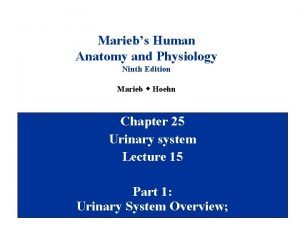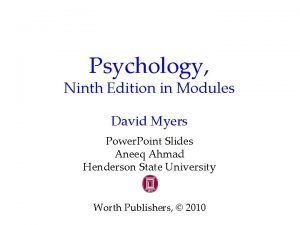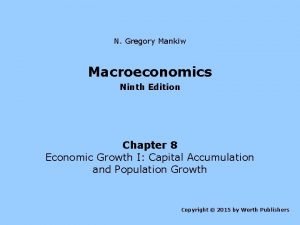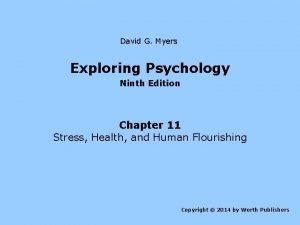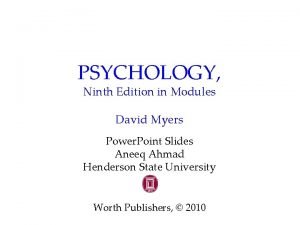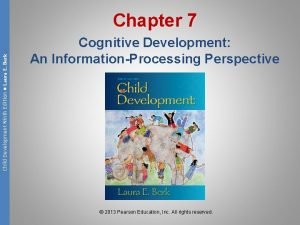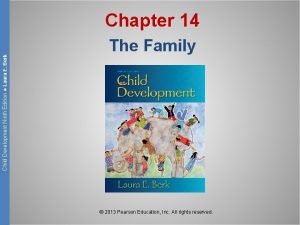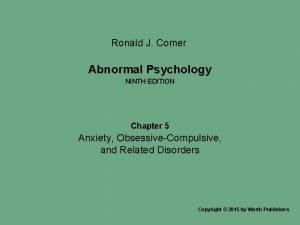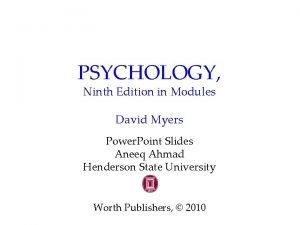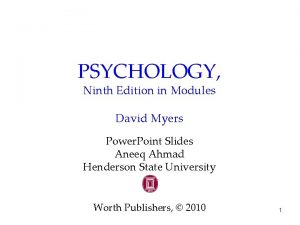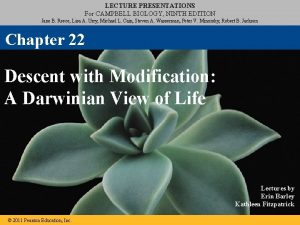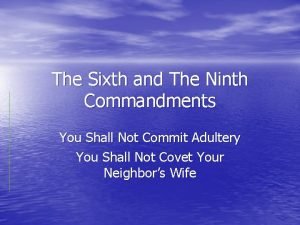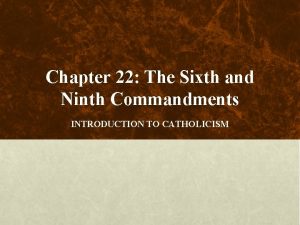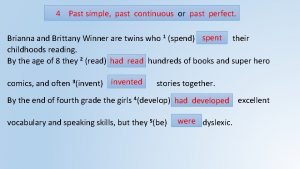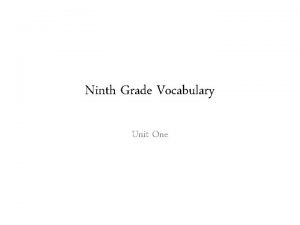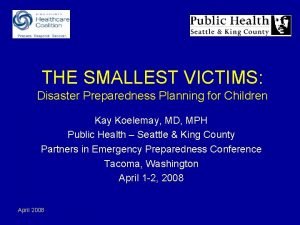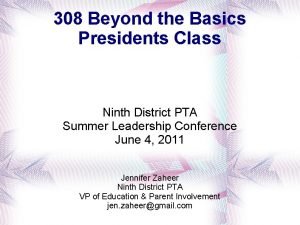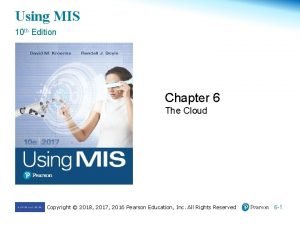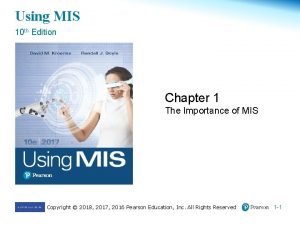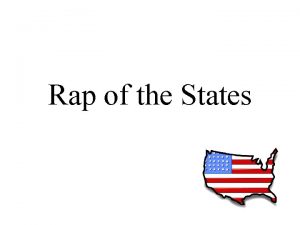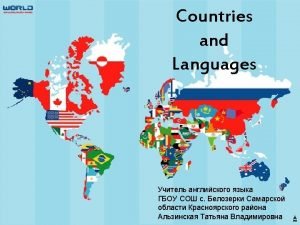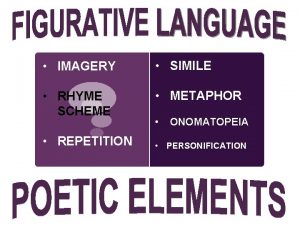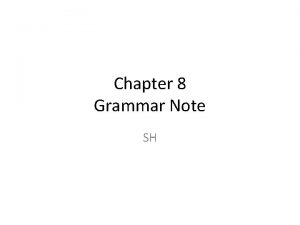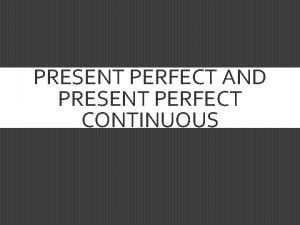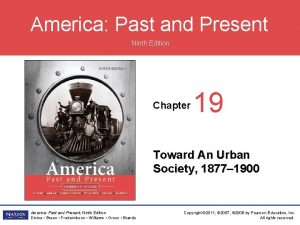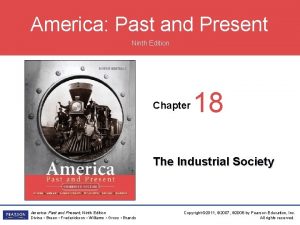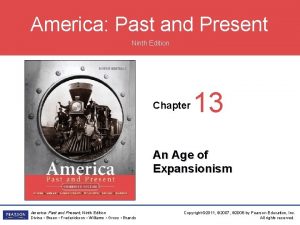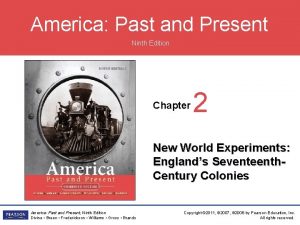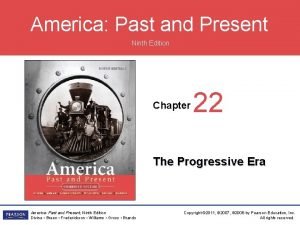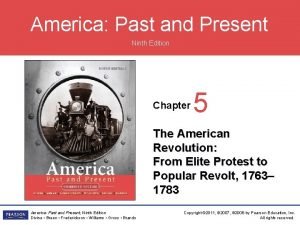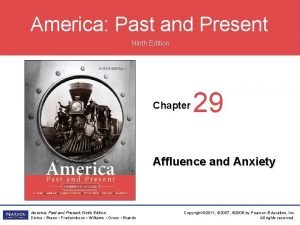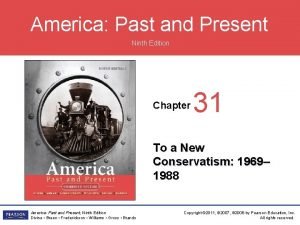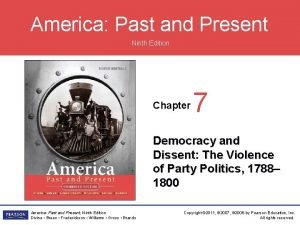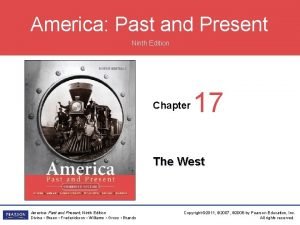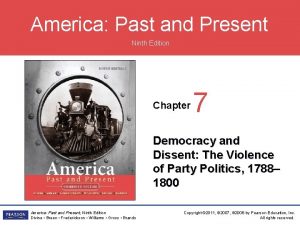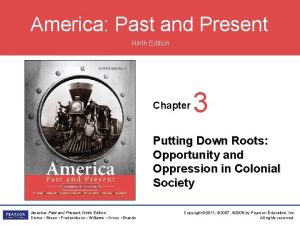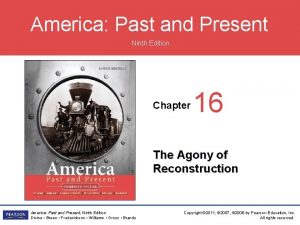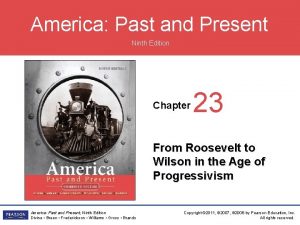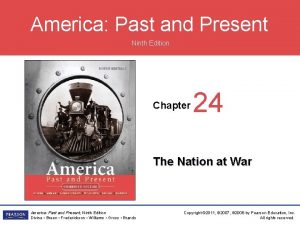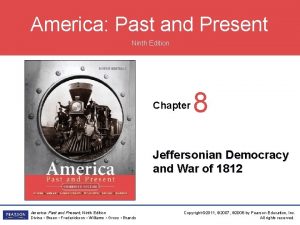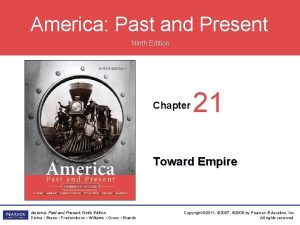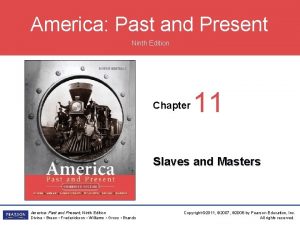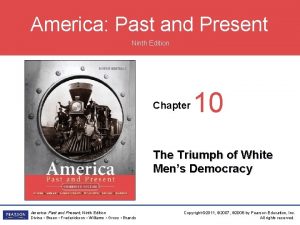America Past and Present Ninth Edition Chapter 28







































- Slides: 39

America: Past and Present Ninth Edition Chapter 28 The Onset of the Cold War America: Past and Present, Ninth Edition Divine • Breen • Frederickson • Williams • Gross • Brands Copyright © 2011, © 2007, © 2006 by Pearson Education, Inc. All rights reserved.

The Cold War Begins: Issues Dividing U. S. , U. S. S. R. • Potsdam Conference – note of uncertainty • Fundamental disagreement over control of postwar Europe • Other issues not resolved • War reparations • Economic aid • Nuclear disarmament • Russia first learned of atomic bomb through espionage America: Past and Present, Ninth Edition Divine • Breen • Frederickson • Williams • Gross • Brands Copyright © 2011, © 2007, © 2006 by Pearson Education, Inc. All rights reserved.

Potsdam Conference, 1945 • “New Big 3” – Harry Truman, Clement Attlee, Joseph Stalin • Main Issue: War Reparations • Allies take reparations from their own occupied zones in Germany. • Soviet Union feels justified in taking control of Eastern Europe and half of war reparations from Germany due to loss of 20 million citizens • US and Great Britain wanted to avoid exacting high reparations which would cripple the German economy America: Past and Present, Ninth Edition Divine • Breen • Frederickson • Williams • Gross • Brands Copyright © 2011, © 2007, © 2006 by Pearson Education, Inc. All rights reserved.

New Big Three America: Past and Present, Ninth Edition Divine • Breen • Frederickson • Williams • Gross • Brands Copyright © 2011, © 2007, © 2006 by Pearson Education, Inc. All rights reserved.

The Division of Europe • Key issue at onset of cold war – who would control Postwar Europe – 1945: Russians occupied eastern Europe, American troops occupied western Europe • 1946: Soviet Union sought eastern European buffer and reparations from Industrial Western Zones of Europe – US & Great Britain refused • Stalin separated eastern Europe from western Europe into a system of satellite nations – known as “Iron Curtain” – Included: Hungary, Poland, Romania, Bulgaria, Czechoslovakia, Yugoslavia America: Past and Present, Ninth Edition Divine • Breen • Frederickson • Williams • Gross • Brands Copyright © 2011, © 2007, © 2006 by Pearson Education, Inc. All rights reserved.

Europe After World War II America: Past and Present, Ninth Edition Divine • Breen • Frederickson • Williams • Gross • Brands Copyright © 2011, © 2007, © 2006 by Pearson Education, Inc. All rights reserved.

“Iron Curtain” America: Past and Present, Ninth Edition Divine • Breen • Frederickson • Williams • Gross • Brands Copyright © 2011, © 2007, © 2006 by Pearson Education, Inc. All rights reserved.

Withholding Economic Aid • Soviet Bitterness toward US following WWII was primarily result of US refusal to provide USSR with economic aid – Russia devastated by World War II – Some Americans sought to influence Russia with Lend-Lease economic aid – 1945: United States halted Lend-Lease without Russian settlement § US attempt to contain Russian “expansive tendencies” America: Past and Present, Ninth Edition Divine • Breen • Frederickson • Williams • Gross • Brands Copyright © 2011, © 2007, © 2006 by Pearson Education, Inc. All rights reserved.

The Atomic Dilemma • 1943: Nuclear race between U. S. and U. S. S. R. – USSR learns of US atomic weapons through espionage • 1946: Baruch Plan – disarmament plan – Rapid reduction of U. S. military force – Gradual reduction of weapons – Would have preserved U. S. atomic monopoly • Soviet Union – Larger conventional army than U. S. – Wanted immediate destruction of atomic weapons America: Past and Present, Ninth Edition Divine • Breen • Frederickson • Williams • Gross • Brands Copyright © 2011, © 2007, © 2006 by Pearson Education, Inc. All rights reserved.

Containment • Foreign Service Officer: George F. Kennan – Formulated the “containment” policy which became the basis of the Truman Administration Foreign Policy – Proposed American vigilant counterforce regarding Soviet expansionist tendencies – Kennan: Believed firmly that American Foreign Policy be left to the experts America: Past and Present, Ninth Edition Divine • Breen • Frederickson • Williams • Gross • Brands Copyright © 2011, © 2007, © 2006 by Pearson Education, Inc. All rights reserved.

The Truman Doctrine • 1947: Truman sought funds to keep Greece and Turkey in Western sphere of influence • Truman Doctrine: Vowed to, “Support free peoples who are resisting attempted subjugation by armed minorities or outside pressure” • Doctrine an informal declaration of cold war against the Soviet Union America: Past and Present, Ninth Edition Divine • Breen • Frederickson • Williams • Gross • Brands Copyright © 2011, © 2007, © 2006 by Pearson Education, Inc. All rights reserved.

How Communism Works • Even before the Cold War many Americans were concerned with the spread of communism. The cover of this 1938 pamphlet portrays Soviet Communism as “an octopus whose tentacles seek to encircle the planet. • Dominated the Cold War era of US history America: Past and Present, Ninth Edition Divine • Breen • Frederickson • Williams • Gross • Brands Copyright © 2011, © 2007, © 2006 by Pearson Education, Inc. All rights reserved.

The Marshall Plan • 1947: George C. Marshall appointed Secretary of State – Relied heavily on talents of Dean Acheson and George Patton • Called for “containment of Russia’s expansive tendencies” – Contain Communism America: Past and Present, Ninth Edition Divine • Breen • Frederickson • Williams • Gross • Brands Copyright © 2011, © 2007, © 2006 by Pearson Education, Inc. All rights reserved.

The Marshall Plan • 1947: George Marshall proposed aid for rebuilding Western European industries – gave massive amounts of American Capital in Western Europe – Foreign Minister V. M. Molotov of Russia refused aid (Stalin believed this to be “economic bullying and was angry aid was promised to Germany) • 1948: Marshall Plan fostered western European prosperity: Generated a broad industrial recovery in Western Europe – Marshall believed key to restoration of political stability lay in the revitalizing of national economies. America: Past and Present, Ninth Edition Divine • Breen • Frederickson • Williams • Gross • Brands Copyright © 2011, © 2007, © 2006 by Pearson Education, Inc. All rights reserved.

Marshall Plan to Aid Europe, 1948– 1952 America: Past and Present, Ninth Edition Divine • Breen • Frederickson • Williams • Gross • Brands Copyright © 2011, © 2007, © 2006 by Pearson Education, Inc. All rights reserved.

The Western Military Alliance • North Atlantic Treaty Organization (NATO) • Fear of Russia’s military aggression • 1949 (Treaty Signed): – Military alliance included U. S. , Canada, most of western Europe – U. S. troops stationed in Europe – Agree to defend western Europe • NATO intensified Russia’s fear of the West America: Past and Present, Ninth Edition Divine • Breen • Frederickson • Williams • Gross • Brands Copyright © 2011, © 2007, © 2006 by Pearson Education, Inc. All rights reserved.

The Berlin Blockade • Soviet’s response to US Policy of containment – Berlin Blockade • June, 1948: Russian blockade of Berlin • Truman ordered massive airlift to supply the city • 1949: Russians end blockade • U. S. political victory dramatized division America: Past and Present, Ninth Edition Divine • Breen • Frederickson • Williams • Gross • Brands Copyright © 2011, © 2007, © 2006 by Pearson Education, Inc. All rights reserved.

The Military Dimension • 1947: National Security Act – Department of Defense unified armed forces – Central Intelligence Agency established: coordinated intelligence-gathering – National Security Council advised president • 1949: First Russian atomic bomb exploded, U. S. began hydrogen bomb development America: Past and Present, Ninth Edition Divine • Breen • Frederickson • Williams • Gross • Brands Copyright © 2011, © 2007, © 2006 by Pearson Education, Inc. All rights reserved.

The Cold War Expands • 1947: U. S. –Russian arms race accelerated • New economic document – NSC-68 based on premise that soviets want to impose world authority • NSC – 68 - advocated massive military spending and expansion • NSC – 68: Proof of Truman’s determination to win the Cold War America: Past and Present, Ninth Edition Divine • Breen • Frederickson • Williams • Gross • Brands Copyright © 2011, © 2007, © 2006 by Pearson Education, Inc. All rights reserved.

The Cold War in Asia • 1945: U. S. consolidates hold on Japan – brought the transition of the Japanese government into a constitutional democracy • Civil war in China – U. S. supports Chiang Kai-Shek – nationalist and friend to U. S. – Chiang Kai-Shek’s biggest problem – Inflation rises to 100% per year § China has no central banking system • 1949: Victory of Mao Tse-tung brings China into Soviet orbit – People’s Republic of China (PRC) America: Past and Present, Ninth Edition Divine • Breen • Frederickson • Williams • Gross • Brands Copyright © 2011, © 2007, © 2006 by Pearson Education, Inc. All rights reserved.

The Cold War in Asia • Republicans blame loss of China American Diplomats • Truman refused recognition of Communist China, began building up Japan (Focused on Japan as new major ally against China) America: Past and Present, Ninth Edition Divine • Breen • Frederickson • Williams • Gross • Brands Copyright © 2011, © 2007, © 2006 by Pearson Education, Inc. All rights reserved.

The Korean War, 1950 -1953 • Show down between U. S. and Soviets in Korea • After WW II, Korea taken back from Japan, Soviets dominate North Korea and U. S. influence South Korea • June 1950: Communist North Korean forces invade South Korea • July 1950: U. S. troops enter war on South Korea’s behalf America: Past and Present, Ninth Edition Divine • Breen • Frederickson • Williams • Gross • Brands Copyright © 2011, © 2007, © 2006 by Pearson Education, Inc. All rights reserved.

The Korean War (cont. ) • Truman makes South Korea’s defense a U. N. effort, – China threatens war if U. S. invades North Korea – U. S. invades North Korea and China enters war – Mac. Arthur overconfident and gave Truman bad advice – U. S. pushed back to South, fighting stalled with casualties mounting nothing to show – U. S. works for armistice with North Koreans • Most Important Result: Massive American rearmament America: Past and Present, Ninth Edition Divine • Breen • Frederickson • Williams • Gross • Brands Copyright © 2011, © 2007, © 2006 by Pearson Education, Inc. All rights reserved.

America: Past and Present, Ninth Edition Divine • Breen • Frederickson • Williams • Gross • Brands Copyright © 2011, © 2007, © 2006 by Pearson Education, Inc. All rights reserved.

The Cold War at Home • Truman perpetuates New Deal which had begun under FDR: – New Deal: programs to combat economic depression enacted a number of social insurance measures and used government spending to stimulate the economy. • Public fears Communist subversion (Demonstrations) • Republicans used anticommunism and dissatisfaction of the Cold War to revive their party America: Past and Present, Ninth Edition Divine • Breen • Frederickson • Williams • Gross • Brands Copyright © 2011, © 2007, © 2006 by Pearson Education, Inc. All rights reserved.

Truman Vindicated • 1948 election: Truman thought unelectable – “Give ‘em hell, Harry” – 1946 nickname & campaign slogan • Democratic party is split – Formed “Dixiecrats” (Southern Democrats) § Led by Strom Thurmond in the 1948 election • Republican Thomas Dewey overconfident and ran bland campaign • Truman won due to Decisive Factor– people are happy about the way he handled Berlin Crisis • Agreed with his overseas policies • Congress votes to end wartime price controls – prices rise 25% in two years America: Past and Present, Ninth Edition Divine • Breen • Frederickson • Williams • Gross • Brands Copyright © 2011, © 2007, © 2006 by Pearson Education, Inc. All rights reserved.

America: Past and Present, Ninth Edition Divine • Breen • Frederickson • Williams • Gross • Brands Copyright © 2011, © 2007, © 2006 by Pearson Education, Inc. All rights reserved.

The Loyalty Issue • Fear of Communism in this Country • House Un-American Activities Committee investigated Communist subversion in government • Truman responded with loyalty program • Alger Hiss spy case 1940 s: Most famous disclosure of espionage activities – Hiss accused of being a Communist spy • Democrats were blamed for: – “Losing” China to Communism – Russia’s development of a hydrogen bomb – Julius and Ethel Rosenberg executed for passing American atomic secrets to the Soviet Union America: Past and Present, Ninth Edition Divine • Breen • Frederickson • Williams • Gross • Brands Copyright © 2011, © 2007, © 2006 by Pearson Education, Inc. All rights reserved.

Mc. Carthyism in Action • 1950: Senator Joseph Mc. Carthy launched anticommunist campaign to hunt out communists in U. S. – “Red Scare” • Mc. Carthy's methods criticized – Never had substantial evidence of Communism in Congress • Attacks on bureaucrats and Hollywood – Led to “Red Menace” Propaganda against Communism • Claimed he wanted to defeat the enemy at home • Attack on Army discredited Mc. Carthy America: Past and Present, Ninth Edition Divine • Breen • Frederickson • Williams • Gross • Brands Copyright © 2011, © 2007, © 2006 by Pearson Education, Inc. All rights reserved.

America: Past and Present, Ninth Edition Divine • Breen • Frederickson • Williams • Gross • Brands Copyright © 2011, © 2007, © 2006 by Pearson Education, Inc. All rights reserved.

The Republicans in Power • 1952: Eisenhower captures White House for Republican Party – says he will end Korean War • 1953: stalemate accepted in Korea • Republicans used fear of Communism to win election • During the Eisenhower administration the U. S. relied mainly on the air force and its nuclear striking power • Eisenhower’s Secretary of State: John Foster Dulles America: Past and Present, Ninth Edition Divine • Breen • Frederickson • Williams • Gross • Brands Copyright © 2011, © 2007, © 2006 by Pearson Education, Inc. All rights reserved.

Eisenhower Wages the Cold War • Eisenhower prefers to work behind the scenes • Eisenhower wanted to relax tensions with Soviets – 6 months after becoming president, Eisenhower agreed to armistice ending fighting in Korea for 3 years – Debt imposed by defense spending – Possibility of atomic warfare • Eisenhower’s “new look” policy relied on massive retaliation to deter Soviet attacks • Frequently used CIA America: Past and Present, Ninth Edition Divine • Breen • Frederickson • Williams • Gross • Brands Copyright © 2011, © 2007, © 2006 by Pearson Education, Inc. All rights reserved.

Entanglement in Indochina • After WWII, French controlled Vietnam • 1954, Ho Chi Minh lead Communist guerrillas (Vietminh) against French colonial rule – U. S. Admiral Arthur Radford calls for U. S. military assistance to prevent French defeat • International conference divides Vietnam at 17 th parallel with provision for general election by 1956 • Ho Chi Minh gains North Vietnam • French get South Vietnam with U. S. economic support – eventually French leave and U. S. takes over America: Past and Present, Ninth Edition Divine • Breen • Frederickson • Williams • Gross • Brands Copyright © 2011, © 2007, © 2006 by Pearson Education, Inc. All rights reserved.

Turmoil in the Middle East • Suez Canal built by England French • 1956: Egyptian leader Gamal Nasser seized control of Suez Canal • France, England retaliated and invaded Egypt • Eisenhower won Middle East trust by pressuring English, French withdrawal – Eisenhower’s first serious foreign policy crisis • 1958: Lebanon invited U. S. troops to maintain order America: Past and Present, Ninth Edition Divine • Breen • Frederickson • Williams • Gross • Brands Copyright © 2011, © 2007, © 2006 by Pearson Education, Inc. All rights reserved.

Containing China • U. S. takes a tough line against China • Policy was to drive a wedge between China and Russia • U. S. backs Chiang Kai-shek’s government in Formosa Straits (Taiwan) – Hint at use of nuclear retaliation to halt Chinese attacks on islands of Quemoy and Matsu – First test of Eisenhower’s new policy to contain Chinese communism: Formosa Straits • Refuses to recognize mainland China America: Past and Present, Ninth Edition Divine • Breen • Frederickson • Williams • Gross • Brands Copyright © 2011, © 2007, © 2006 by Pearson Education, Inc. All rights reserved.

Covert Actions • • Iran: CIA put the Shah in power – led to later problems Guatemala: CIA ousted leftist government Eisenhower declines help to everyone Refused to help East German protestors against Soviet domination – 900 calorie diet for citizens • Refused to help Hungarian freedom fighters against Soviets • Unauthorized by Eisenhower: CIA overthrow of democratically elected government in Iraq America: Past and Present, Ninth Edition Divine • Breen • Frederickson • Williams • Gross • Brands Copyright © 2011, © 2007, © 2006 by Pearson Education, Inc. All rights reserved.

Waging Peace • Nuclear test ban treaty (detect nuclear testing without going on-site) – U. S. and U. S. S. R. agreed to suspend nuclear testing in the atmosphere – Agree to have conference • October, 1957: Russians launched Sputnik – First satellite to orbit Earth • U. S. concern about Intercontinental ballistic missiles (ICBM) – Does Soviet Union have more? • Khrushchev – “We will bury you” • Khrushchev wants U. S. Great Britain, France out of Berlin (2 nd Berlin Crisis) • May, 1960: U-2 incident cancelled plans for summit on new Berlin Crisis America: Past and Present, Ninth Edition Divine • Breen • Frederickson • Williams • Gross • Brands Copyright © 2011, © 2007, © 2006 by Pearson Education, Inc. All rights reserved.

The Continuing Cold War • January, 1961: Eisenhower warned against growing military-industrial complex • Post-war era marked by Cold War rather than peace and tranquility • New leader of Soviet Union was Nikita Khrushchev America: Past and Present, Ninth Edition Divine • Breen • Frederickson • Williams • Gross • Brands Copyright © 2011, © 2007, © 2006 by Pearson Education, Inc. All rights reserved.

What’s left? • http: //www. history. com/topics/coldwar/cold-war-history America: Past and Present, Ninth Edition Divine • Breen • Frederickson • Williams • Gross • Brands Copyright © 2011, © 2007, © 2006 by Pearson Education, Inc. All rights reserved.
 Human anatomy & physiology edition 9
Human anatomy & physiology edition 9 Levels of analysis psychology
Levels of analysis psychology Macroeconomics mankiw 9th edition
Macroeconomics mankiw 9th edition Psychology ninth edition david g myers
Psychology ninth edition david g myers Social psychology ninth edition
Social psychology ninth edition Biology ninth edition
Biology ninth edition Laura e berk child development (9th edition pdf)
Laura e berk child development (9th edition pdf) Child development 9th edition
Child development 9th edition Abnormal psychology comer 9th edition
Abnormal psychology comer 9th edition Psychology ninth edition in modules
Psychology ninth edition in modules Psychology ninth edition in modules
Psychology ninth edition in modules Biology ninth edition
Biology ninth edition Campbell ninth edition
Campbell ninth edition Past simple, past continuous and past perfect
Past simple, past continuous and past perfect The sixth and ninth commandments
The sixth and ninth commandments The sixth and ninth commandments
The sixth and ninth commandments Forma past continuous
Forma past continuous Past simple continuous and perfect
Past simple continuous and perfect Photo greek root
Photo greek root Ramadan is the ninth month of the islamic calendar
Ramadan is the ninth month of the islamic calendar William blount 9th grade academy
William blount 9th grade academy Lower ninth ward
Lower ninth ward Classical accompaniment of poulet maryland
Classical accompaniment of poulet maryland Ninth district pta
Ninth district pta Using mis (10th edition) 10th edition
Using mis (10th edition) 10th edition Report
Report What are the branches of criminal justice system
What are the branches of criminal justice system Past perfect past continuous past simple
Past perfect past continuous past simple We can do a rap of the map of the us
We can do a rap of the map of the us America vs africa
America vs africa Whats an onomatopeia
Whats an onomatopeia Why is latin america called latin america
Why is latin america called latin america Happening e performance
Happening e performance Past participle examples list
Past participle examples list Tear past participle
Tear past participle Simple present vs past progressive
Simple present vs past progressive Past simple v present perfect
Past simple v present perfect Perfect present progressive
Perfect present progressive Present simple present continuous and present perfect
Present simple present continuous and present perfect Past progressive affirmative
Past progressive affirmative
